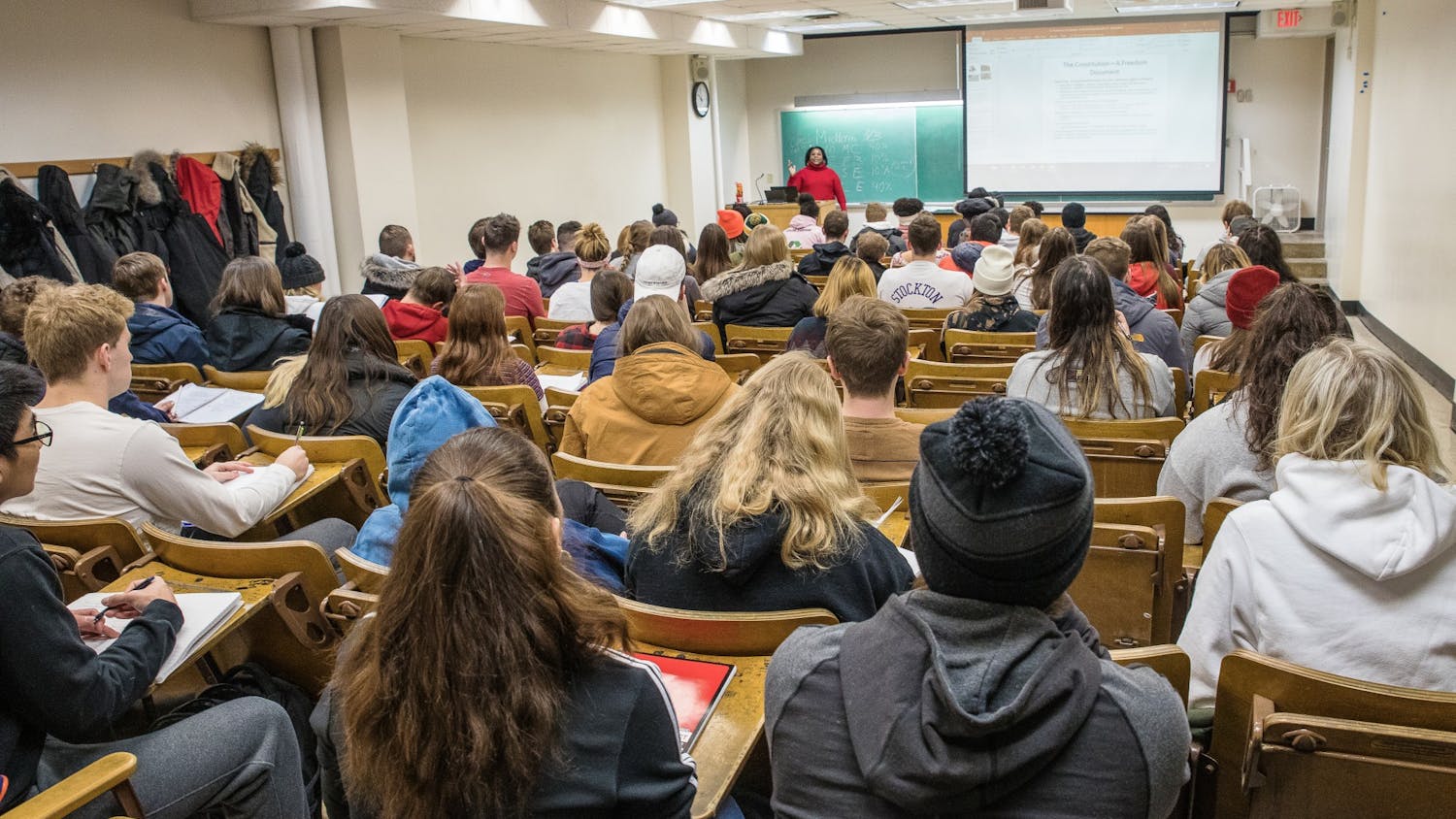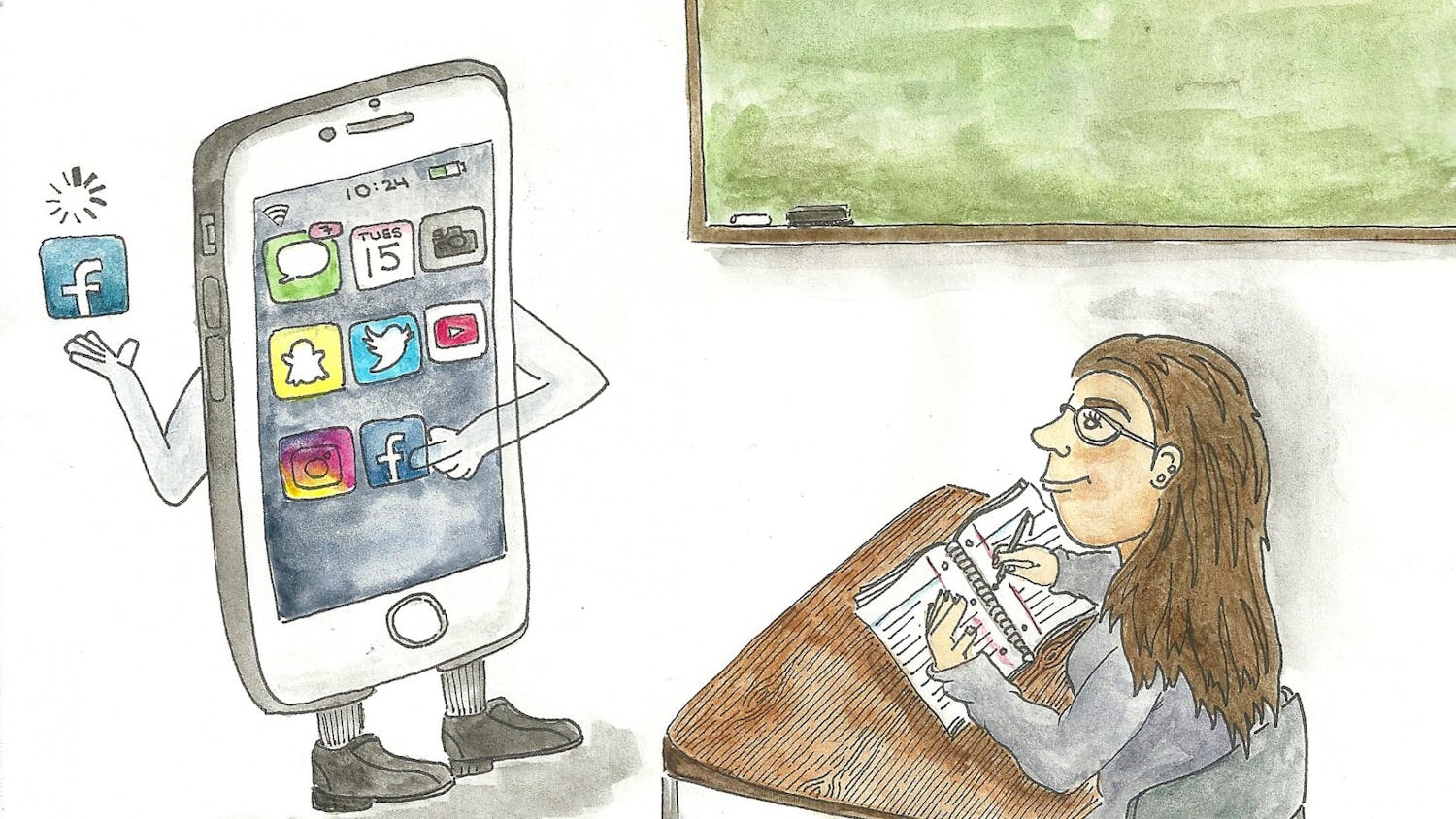Whether you’re commuting, on a road trip or listening while you work, podcasts have become a mainstay of American pastime. Having skyrocketed in popularity in the past few years, they have developed from an obscure media hobby to a vast industry.
In becoming such a staple media fixture, UW-Madison now offers a full course focused on the study and production of podcasts.
Communication Arts 449: “Sound Cultures: Podcasting and Music” was originally a class centered around sound culture theory and analysis. That is, until Professor Jeremy Morris came onto the scene.
When Professor Morris started the course in 2014, it focused on sound studies, a subset of media studies, and said that he was unsure the draw a podcasting course would have at the time.
“When I offered the class I didn’t even know that podcasting was a big enough thing that I could put ‘podcasting’ in the course title and it would attract students,” Morris said.
Little did he know 449 would grow in size from 24 students to its current size of around 45. The current problem is that the class is in too much demand. Morris said that the interest is great and he wants to accommodate as many students as the class’s resources and its “modular discussion group” format allows.
The class covers theoretical topics about sound as well as the technical process of recording and editing a podcast with professional equipment and editing programs. The final project of the course is, naturally, a podcast episode. Students must group up and record, produce and edit a launch episode of their own original podcast. Final projects have varied from sports to nightlife to dream journals.
Cheyenne Klitzke, a junior and Communication Arts major, is currently enrolled in 449 and loves it. She was drawn to the class through a prior interest in podcasting.
“My friend and I, we’ve started our own podcast and we were like ‘It would be cool if we actually knew how to do this’, so we enrolled in it together,” Klitzke said.
A college course about podcasting shows how, when media and culture are changing rapidly, higher education must evolve to keep up. The concept of adapt or die applies to almost everything and education is no different.
UW-Madison gives students the chance to trade in the classroom for the sound booth. At WSUM 91.7 FM, the campuses student radio, students can now join their podcasting club and record their own shows.
Klitzke hopes the class will teach her the skills necessary to produce a podcast and help toward her ambitions of radio broadcasting and production.
This is Professor Morris’ hope as well. He wants to develop students’ technical skill as much as possible, but he also thinks about the course in more human terms.
“Hopefully [the course] gets people to listen differently, gets them to listen critically and it gets them to think about listening as something that is built over time,” Morris said.
It is these fundamental skills that make 449 a more modern course. Many believe the next level of education teaches you not just practical skills, but the skills to be a good person with compassion and empathy.
“The way we hear sounds depends on who we are and where we come from, our own identities shaped by our age, race, gender, class,” Morris said. “All these things play into how we hear something.”
For Morris, sound is not just one of our senses but a factor that shapes our perspectives.
“The sound of a police siren for example means something different if you grew up in one neighborhood versus if you grew up in another neighborhood,” Morris pointed out. “So teaching students that sound means something different to each person and that they are also dependent on who you are and what you’ve heard throughout your life.”






